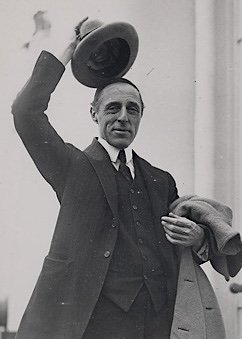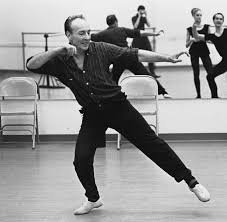JANUARY 22
JOHN DONNE (Jan. 22, 1572)
January 22 is the birthday of poet and Anglican cleric JOHN DONNE (1572-1631).
"Never send to know for whom the bell tolls; it tolls for thee."
Donne "is considered the pre-eminent representative of the metaphysical poets. His works are noted for their strong, sensual style and include sonnets, love poems, religious poems, Latin translations, epigrams, elegies, songs, satires and sermons. His poetry is noted for its vibrancy of language and inventiveness of metaphor, especially compared to that of his contemporaries. Donne's style is characterized by abrupt openings and various paradoxes, ironies and dislocations. These features, along with his frequent dramatic or everyday speech rhythms, his tense syntax and his tough eloquence, were both a reaction against the smoothness of conventional Elizabethan poetry and an adaptation into English of European baroque and mannerist techniques." (Wikipedia)
D.W. GRIFFITH (Jan. 22, 1875)
January 22 is the birthday of American film pioneer D.W. GRIFFITH (1875-1948).
Griffith is perhaps best known for the controversial BIRTH OF A NATION and the monumental epic INTOLERANCE.
"Remember how small the world was before I came along? I brought it all to life: I moved the whole world onto a 20-foot screen."
"Regarded as one of the great masterpieces of the silent era (though it received mixed reviews at the time, the three-and-a-half-hour epic intercuts four parallel storylines, each separated by several centuries: a contemporary melodrama of crime and redemption, a Judean story: Christ's mission and death, a French story: the events surrounding the St. Bartholomew's Day massacre of 1572, and a Babylonian story: the fall of the Babylonian Empire to Persia in 539 BC. Each story had its own distinctive color tint in the original print, but not in the currently available versions. The scenes are linked by shots of a figure representing Eternal Motherhood, rocking a cradle." (Wikipedia)
ROSA PONSELLE (Jan. 22, 1897)
January 22 is the birthday of soprano and Metropolitan Opera star ROSA PONSELLE (1897-1981).
"Luciano Pavarotti advises young singers to make a sincere study of the recordings of Rosa Ponselle. To many young singers in any age - ours, or some distant ones - this will always be excellent advice. She is the Queen of Queens in all singing! Rosa Ponselle's legato was perfect, utterly seamless, sinuous, exquisitely modulated, with a control of breath that leaves a listener breathless in wonder." -- Tullio Serafin
SERGEI EISENSTEIN (JAN. 22 1898)
January 22 is the birthday of the great Soviet film director SERGEI EISENSTEIN (1898-1948).
Eisenstein "was a Soviet film director, screenwriter, film editor and film theorist. Considered one of the greatest filmmakers of all time, he was a pioneer in the theory and practice of montage. He is noted in particular for his silent films Strike (1925), Battleship Potemkin (1925) and October (1928), as well as the historical epics Alexander Nevsky (1938) and Ivan the Terrible (1945/1958). In its 2012 decennial poll, the magazine Sight & Sound named his Battleship Potemkin the 11th-greatest film of all time." (Wikipedia)
GEORGE BALANCHINE (Jan. 22, 1904)
January 22 is the birthday of the great choreographer and cofounder of the New York City Ballet GEORGE BALANCHINE (1904-1983).
"The ballet is a purely female thing; it is a woman, a garden of beautiful flowers, and man is the gardener."
Balanchine "was a Georgian-American ballet choreographer, recognized as one of the most influential choreographers of the 20th-century. Styled as the father of American ballet, he co-founded the New York City Ballet and remained its artistic director for more than 35 years. His choreography is characterized by plotless ballets with minimal costume and décor, performed to classical and neoclassical music." (Wikipedia)
HENRI DUTILLEUX (Jan. 22, 1916)
January 22 is the birthday of French composer HENRI DUTILLEUX (1916-2013).
Dutilleux "was a French composer of late 20th-century classical music. Among the leading French composers of his time, his work was rooted in the Impressionistic style of Debussy and Ravel, but in an idiosyncratic, individual style. Among his best known works are his early Flute Sonatine and Piano Sonata; concertos for cello, Tout un monde lointain... ('A whole distant world') and violin, L'arbre des songes ('The tree of dreams'); a string quartet known as Ainsi la nuit ('Thus the night'); and two symphonies: No. 1 (1951) and No. 2 Le Double (1959)." (Wikipedia)






